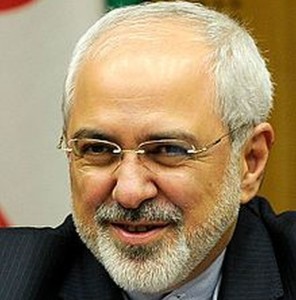As We Search for a COVID Vaccine, Remembering Past National Unity and the Legacy of Jonas Salk
Each year in the 1940s and ’50s, more than 15,000 Americans were paralyzed by polio and thousands died. The disease reached its peak in the United States in 1952, leaving 3,145 Americans dead and some 21,269 paralyzed. As with the country and world at this time struggling to deal with another deadly virus — SARS-CoV-2, more commonly referred to as COVID-19 — methods to combat the contagion included quarantines, prevention efforts, and the race for a vaccine.More than 500 Israelis have died from COVID-19 in July-August
Decades ago, in a nation struggling to deal with the scourge that came each summer to prey on America’s children, a champion emerged in the form of Dr. Jonas Salk, a soft-spoken American Jewish scientist at the University of Pittsburgh who developed the first, and ultimately most effective, vaccine to eradicate polio, a disease that had plagued humanity for millennia. Known for his dedication, brilliance, and altruism, Salk and his work in the field became the stuff of legend. An official announcement of the vaccine’s safety and efficacy on April 12, 1955 catapulted him to international fame and enshrined him as a titan in the history of science and humankind.
It also made him a legend in the American and world Jewish communities.
Jewish Americans and others among Salk’s early vaccine volunteer subjects, one of his former lab workers, and his son Peter Salk, a doctor and part-time professor of infectious diseases at the University of Pittsburgh, spoke with JNS about their recollections of the man and scientist. They also shared their memories of the polio years, thoughts on similarities and differences between the polio and COVID-19 eras, and considered what lessons might be applied from that time to the current predicament in the United States and the world.
Many people who were infected with polio were asymptomatic and never became sick. Some developed mild, flu-like illness, usually with fever, sore throat, and achiness, and recovered. In other cases, however, the disease progressed to severe symptoms, including very bad muscle cramps, weakness, and paralysis within a week.
In the worst cases, polio resulted in death or lifelong paralysis inside an iron lung, a coffin-like respirator that took over breathing for an afflicted individual.
Over 500 Israelis have died of COVID-19 since July 1, according to Health Ministry data, with the death toll since the start of the pandemic rising to 825 on Sunday.Top UK scientist warns COVID-19 likely won’t ever truly go away
The Health Ministry confirmed 2,212 new coronavirus cases throughout the weekend on Friday and Saturday. Having crossed the 100,000 mark on Friday, the official tally stood at 102,150 as of Sunday morning, with 22,022 active cases.
Of them, 408 were in serious condition, including 112 on ventilators. Another 186 were in moderate condition, and the rest had mild or no symptoms.
The ministry said 26,372 coronavirus test results returned Friday, of which 5.7 percent were positive, and 10,260 results came back Saturday, with 7% of them showing a positive result. Testing levels normally go down considerably during weekends.
The death toll increased by six since Saturday evening, reaching 825.
A ministry tally indicated that more than 500 Israelis have died during July and August, compared with 320 from March to June.
The Health Ministry said 9,367 new cases were confirmed last week, including 1,374 in Jerusalem, 494 in Bnei Brak, 372 in Modiin Illit, 342 in Ashdod and 267 in Tel Aviv. No infections were found in only in few towns and communities.
A former chief scientific adviser to the British government has said COVID-19 will likely be around forever, and that regular vaccination will be needed to contain the coronavirus and prevent it from spreading.
“This is a virus that is going to be with us forever in some form or another, and almost certainly will require repeated vaccinations,” Sir Mark Walport told the BBC in an interview Saturday. “So, a bit like flu, people will need re-vaccination at regular intervals.”
Unlike diseases such as smallpox, “which could be eradicated by vaccination,” Walport said the novel coronavirus was more like influenza, requiring people around the globe to be inoculated “at regular intervals.”
Walport was not referring to the global pandemic continuing, but rather to the virus remaining a recurring problem even after the pandemic itself has been brought under control.
His comments came a day after WHO chief Tedros Adhanom Ghebreyesus’s comments that the pandemic could be over in two years, noting the Spanish Flu lasted from 1918 to 1920.
Walport, a member of the Scientific Advisory Group for Emergencies, stressed the global population is now much larger and that denser living conditions and increased travel allow the virus to spread more easily.
He also expressed concern over rising infection rates in Europe and elsewhere in the world, warning the pandemic could again get “out of control.”
Tedros Adhanom Ghebreyesus, director-general of the World Health Organization, speaks during a news conference on updates regarding the novel coronavirus, at the WHO headquarters in Geneva, Switzerland. (Salvatore Di Nolfi/Keystone via AP, file)
In his comments Friday, Tedros sought to draw favorable comparisons with the notorious flu pandemic of 1918.








 Tehran, August 21 - Diplomacy and politics are all about compromise. Both arts require flexibility, creative thinking, and efforts to craft win-win situations in which all parties to the issue can walk away with a compelling argument that they gain from the outcome. Iran therefore proposes the following: the Islamic Republic will depart from its long-held position that Israel has no right to exist, and will grant full recognition of the Jewish State, and in return, that Jewish State will concede to our eliminating it by violent means.
Tehran, August 21 - Diplomacy and politics are all about compromise. Both arts require flexibility, creative thinking, and efforts to craft win-win situations in which all parties to the issue can walk away with a compelling argument that they gain from the outcome. Iran therefore proposes the following: the Islamic Republic will depart from its long-held position that Israel has no right to exist, and will grant full recognition of the Jewish State, and in return, that Jewish State will concede to our eliminating it by violent means.





















